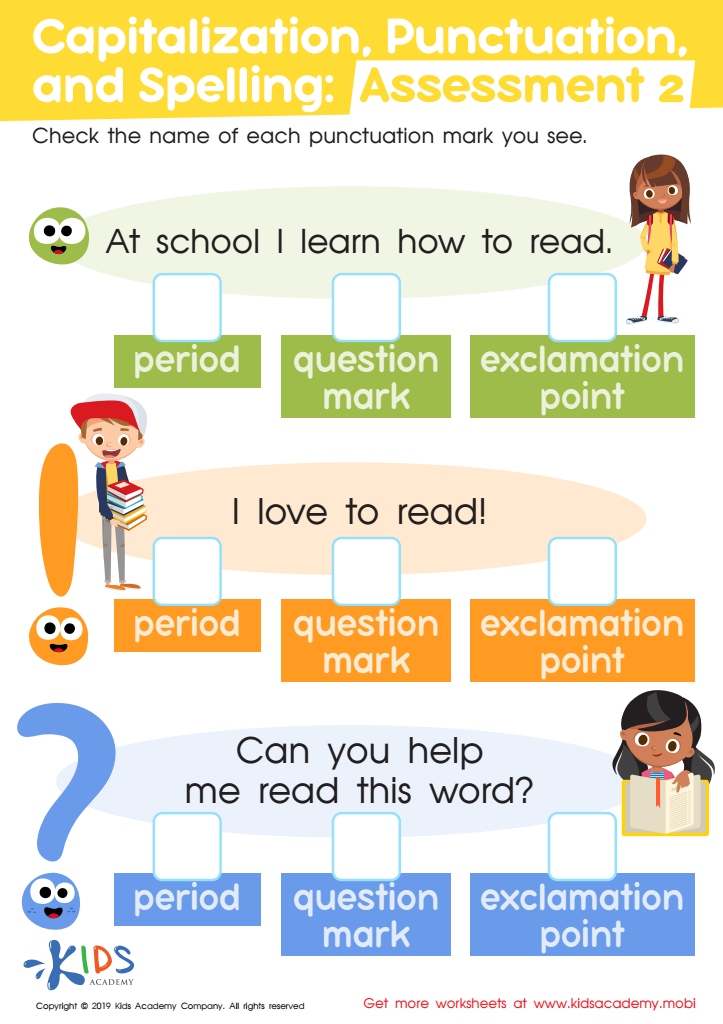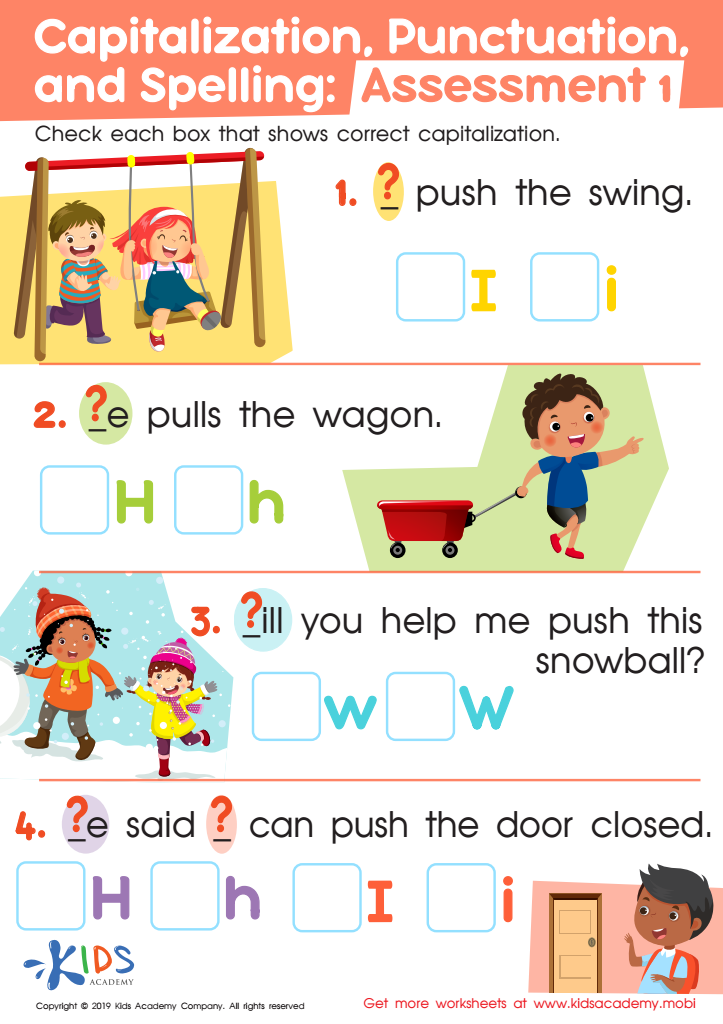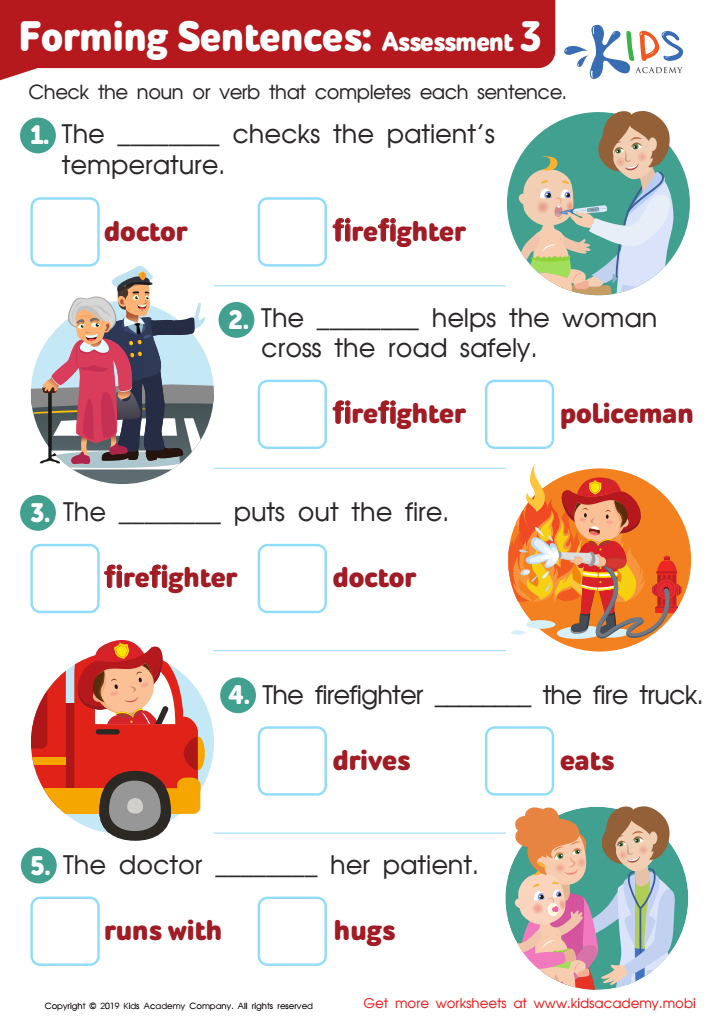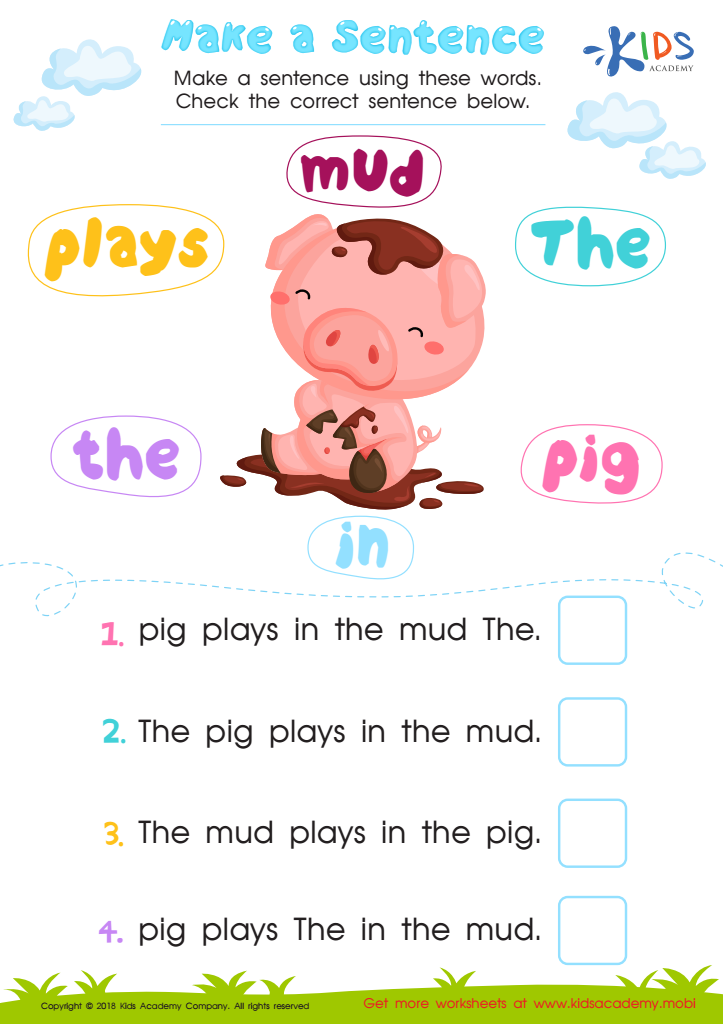Easy Writing worksheets activities for Ages 5-7
4 filtered results
-
From - To
Discover engaging and fun Easy Writing Worksheets for children ages 5-7! Our carefully designed activities promote early writing skills through a variety of interactive worksheets that nurture creativity and enhance literacy. With themes tailored to young learners, each worksheet encourages practice in crafting sentences, understanding punctuation, and expanding vocabulary. From tracing letters to simple story prompts, these resources are perfect for classroom use or at-home learning. Help your child develop confidence in their writing abilities while enjoying the process. Check out our vast selection of worksheets that make learning fun and effective, ensuring a strong foundation for your child's educational journey!


Capitalization. Punctuation. Spelling: Assessment 2 Worksheet


Capitalization. Punctuation. Spelling: Assessment 1 Worksheet


Forming Sentences: Assessment 3 Worksheet


Assessment: Make a Sentence Worksheet
Parents and teachers should prioritize Easy Writing activities for children aged 5-7 because these formative years lay the groundwork for essential literacy skills. Engaging children in simple writing tasks not only fosters creativity but also enhances their fine motor skills crucial for effective handwriting. Writing exercises promote vocabulary development, allowing children to express their thoughts and ideas more clearly.
These activities boost confidence in young learners, showing them that their ideas are valuable and worth sharing. Early writing also reinforces phonemic awareness, which is foundational for reading readiness. By combining fun with learning, Easy Writing activities can involve storytelling, journaling, or simple picture labeling, making the experience enjoyable and less intimidating.
Moreover, parents and teachers can track a child’s progress through these activities, allowing for timely support and guidance where needed. Cultivating a positive writing experience establishes a love for language that can last a lifetime. Furthermore, these activities encourage communication and collaboration between parents and teachers, fostering a supportive learning environment. Therefore, prioritizing Easy Writing can significantly contribute to a child’s overall cognitive and emotional development, preparing them not just for academic success, but for effective communication in everyday life.
 Assign to My Students
Assign to My Students















